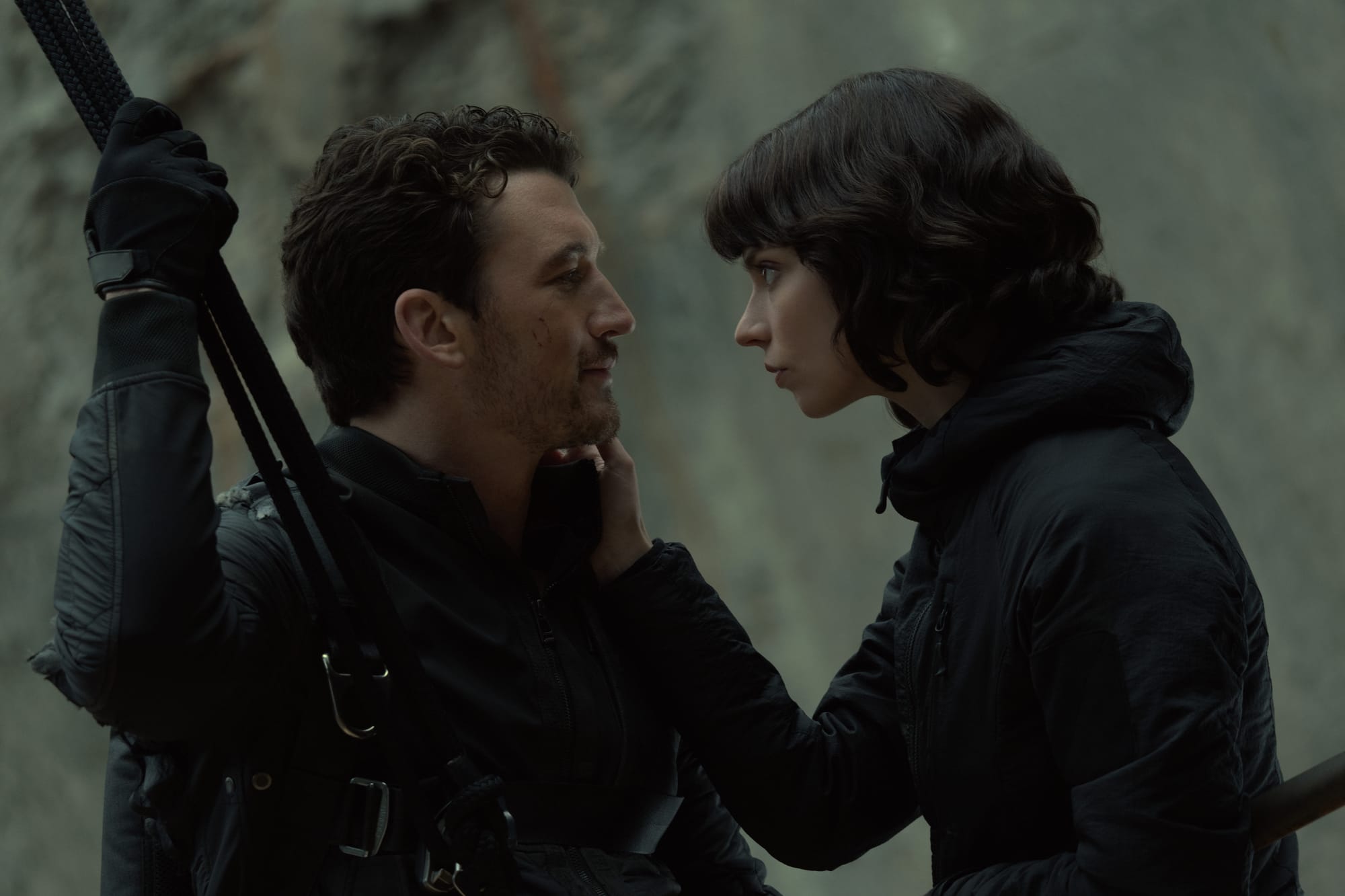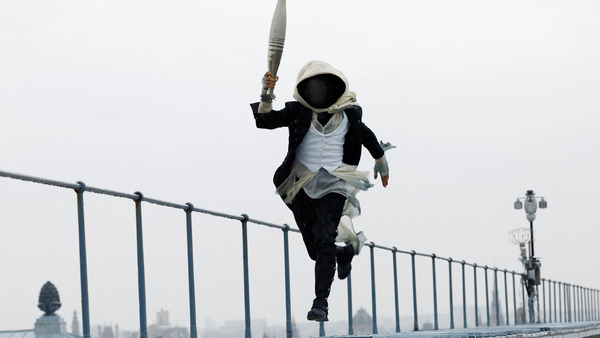Streaming changed cinema forever. Could technology protect it?

The Black List is probably the most influential yet invisible hidden gem in the film industry: a place where some of the screenplays of the most notable films of the modern era were born.
Imagine a Reddit, of sorts, but for screenplays. Where unmade scripts, often from writers trying to break through, have their works ranked and rated—and if they're particularly lucky, optioned by a studio. Notable alumni include Whiplash, In Bruges, The Menu, The Hangover, and the greatest story ever told, The Fast and the Furious: Tokyo Drift.
One of my favourite films so far this year has been The Gorge, from 2020's edition. The Gorge tells the story of two elite snipers from curiously vague backgrounds. Both find themselves deployed in a breathtakingly beautiful but undisclosed location. Their mission? To watch over said big gap for mysterious and important reasons.

Whilst it's no The Fast and the Furious: Tokyo Drift, it is a proper good time; an original, non-franchise story that's compelling, tense, and thrilling to watch. One thing was missing, though, and that was the thrill of seeing it at the cinema.
It's the latest production from Apple who, hands down, has been absolutely knocking it out of the park with its original output. If HBO was the hallmark for game-changing scripted broadcasting at the turn of the century, it's certainly Apple's turn now.
All of this has seen a strategic shift in the film and television industries driven by the home entertainment boom in the 2010s—and of course further emboldened by lockdown a decade later, when many of us spent more time watching film and television at home.
The cost of admission for this shift, however, was the cinema. Cinema admissions here in the UK were pretty steady after the millennium; around 150-180 million visits every year. Though margins for exhibitions alone are not typically enough to stand alone (hence why you end up forking out £7 on nachos).
Since COVID, it's struggled to fully recover. Getting people to head out and enjoy the communal experience of a compelling story on the biggest screen in town should be unbeatable. But it's being beaten by the TV—and cinema's future might never be the same again.
When I was at home visiting my parents, I recommended we watch this new film that had been at the back of my mind for a little while thanks to the Black List, whose synopses I've occasionally flicked through to keep an eye on the most exciting looking ones.
I pitched it for the evening watch as "some sort of elite sniper romcom" to get initial buy-in. When the credits rolled, they were astonished by how much it was not that, but ultimately throughly enjoyed it. I couldn't help but think, "I wish I got to see that in the cinema." My mother raised an interesting thought, though—which is why shouldn't it be?
For companies involved in multiple fields—particularly consumer electronics, creative platforms, and screen entertainment—cinemas should be the ultimate venue for the halo effect.
"It’s in Apple’s DNA that technology alone is not enough. It’s technology married with liberal arts, married with the humanities, that yields us the results that make our hearts sing." — Steve Jobs

For many filmmakers, the cinema remains at the very core of the cinematic experience. So much so that the likes of Christopher Nolan and Quentin Tarantino have raised audible concerns around the transition of film exclusively to the small screen.
Some streamers have of course recognised the importance of this for the medium, and have experimented with operating small-scale or standalone cinemas. Whether that's out of a sense of genuine altruism for the art form or for award qualification, well, who knows.
But for the likes of those involved not just in the distribution of film, but deeply integrated into the creation of it? I can't help but imagine a cinema that brings the best of all that together under one roof.

Picture this. You plan a night out at the cinema, which you don't have to pay for separately because it's part of your streaming subscription plan. It's a special premiere for the latest blockbuster, which you get to watch on the biggest screen and with the best sound, and the director's there for a Q&A afterwards.
You get to see some cool trailers for what's coming soon. That new sci-fi one looks pretty good. Your watch has an 'add to watch list' prompt so you don't forget it. The lights go down and the film starts—everyone's devices go on 'Do Not Disturb' automatically (please, we'd all really appreciate it).
It looks and sounds breathtaking, showcasing the best audiovisual innovation out there. The film ends, it gets marked as watched on your profile, and the lights come up.
The director comes out for the Q&A and talks about the technologies involved in production. Afterwards, you have a wander around the store outside and play with the workstations the filmmakers used, all loaded up with the actual project timeline for what you just watched in the same editing software.
Stepping into the film world is one thing—but the opportunity to get to grips with how a film was brought to life could dramatically shift how the industry inspires and attracts future talent (not to mention empowering artists to get hands-on with the latest tools and technologies to tell their stories.)

In isolation, individual products and tools may seem powerful—but when experiences like this unite them, and make them whole, that's when the magic begins. They're experiences that not only showcase the power of ecosystems and cutting edge technological innovation—but critically, they serve to inspire curious artists who have great stories waiting to be told, but haven't yet done so.
As the tides change on how we consume entertainment—and we consider the future of cinema as a communal, special experience—perhaps there's an opportunity to imagine how we ensure the theatrical experience thrives through the modern era. And in the decades to come, perhaps the next great filmmaker could be inspired to pick up a camera, or stick their script on the Black List. Because nothing beats going to the movies.



